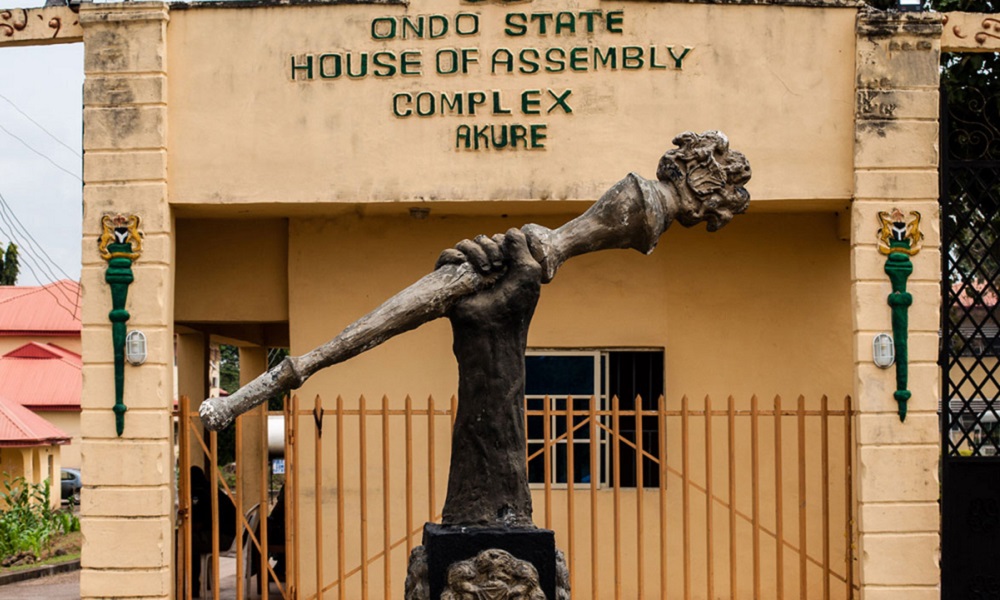News
UK grapples with worst riots in 13 years

By Francesca Hangeior
UK authorities faced growing pressure Sunday to put an end to England’s worst rioting in 13 years after disturbances linked to child murders and involving far-riot agitators flared across the country.
Unrest related to misinformation about a mass stabbing that killed three young girls last week spread to multiple towns and cities on Saturday as anti-immigration demonstrators clashed with police.
The violence is posing a major test for Prime Minister Keir Starmer, who was elected only a month ago after leading Labour to a landslide win over the Conservatives.
About 90 people were arrested after skirmishes broke out at far-right rallies in numerous places including Liverpool, Manchester, Bristol, Blackpool and Hull, as well as Belfast in Northern Ireland.
In some instances, rioters threw bricks, bottles and flares at police — injuring several officers — looted and burnt shops, while demonstrators shouted anti-Islamic slurs as they clashed with counter-protesters.
The violence is the worst England has seen since the summer of 2011, when widespread rioting took place following the police killing of a mixed-race man in north London.
“We’ve had riots and clashes of this nature, but they have been pocketed in particular areas of the country. We’re now seeing it flooding across major cities and towns,” said Tiffany Lynch of the Police Federation of England and Wales.
The government said the police have “all the resources they need” to deal with the disorder as officers warned of more demonstrations on Sunday, leading to fears the unrest could spread further again.
Forces have drafted in extra officers while justice minister Shabana Mahmood has insisted “the whole justice system is ready to deliver convictions as quickly as possible”.
The government’s policing minister, Diana Johnson, told BBC News Sunday that the rioting would “not be tolerated”, vowing “penalties and consequences” for the disorder.
Saturday’s skirmishes marked the fourth day of unrest in several towns and cities following Monday’s frenzied knife attack in Southport, near Liverpool on England’s northwest coast.
They were fuelled by false rumours on social media about the background of British-born 17-year-old suspect Axel Rudakubana, charged with several counts of murder and attempted murder over the attack at a Taylor Swift-themed dance party.
Rudakubana is accused of killing Bebe King, six, Elsie Dot Stancombe, seven, and Alice Dasilva Aguiar, nine, and injuring another 10 people.
Police have blamed the violence on supporters and associated organisations of the English Defence League, an anti-Islam organisation founded 15 years ago whose supporters have been linked to football hooliganism.
Agitators have targeted mosques in Southport and in the northeastern English city of Sunderland, leading to hundreds of Islamic centres to bolster security amid fears for its worshippers’ safety.
The rallies have been advertised on far-right social media channels under the banner “Enough is enough”.
They have seen protesters waving English and British flags while chanting slogans like “Stop the boats” — a reference to irregular migrants travelling to Britain from France.
Anti-fascist demonstrators held counter-rallies in many cities, including Leeds where they shouted, “Nazi scum off our streets”, as the far-right protesters chanted, “You’re not English any more”.
Not all of Saturday’s estimated 30 gatherings turned violent and some participants claimed to have legitimate grievances.
“People are fed up with being told you should be ashamed if you’re white and working class but I’m proud white working class,” 41-year-old Karina, who did not give her surname, told AFP in Nottingham.
Commentators have suggested that the demonstrators, spurred on by online influencers, may feel emboldened by the political ascendancy of anti-immigration elements in British politics.
At last month’s election, the Reform UK party captured 14 percent of the vote — one of the largest vote shares for a far-right British party.
Starmer has accused “thugs” of “hijacking” the nation’s grief to “sow hatred” and has announced new measures to allow the sharing of intelligence, wider deployment of facial-recognition technology and criminal behaviour orders to restrict troublemakers from travelling.
Policing Minister Johnson said the government will do “whatever it takes” to ensure people are brought to justice, including the possibility of courts sitting overnight as they did during the riots in 2011.
News
Army acquires 43 drones, wings 46 Turkey-trained personnel

The Federal Government has bolstered the Nigerian Army’s operational capacity with the acquisition of 43 Bayraktar TB2 drones, primarily for deployment in the North-West theatre of operations.
The Commander of the Nigerian Army Space Command, Brig. Gen. U.G. Ogeleka, disclosed this on Tuesday during the winging ceremony of 46 personnel trained in the operation and maintenance of the drones.
The initiative, codenamed Project Guardian, aims to strengthen military operations against insurgency and other security challenges in the region.
“Between May and September 2022, a team of 35 officers and 11 soldiers from the Nigerian Army’s routinely piloted aircraft system regiments underwent specialised training in Turkey on the operation and maintenance of the Bayraktar TB2 drones,” Ogeleka said. “The training crew included multi-piloted aircraft pilots, mission operators, avionics, and mechanical engineers and technicians.”
Out of the 46 trained personnel, 14 are multi-piloted aircraft pilots, seven are mission operators, and 23 are engineers and technicians.
Ogeleka presented 22 of the trained personnel for the winging ceremony, noting that the others are actively engaged in operational duties.
The Chief of Army Staff, Lt. Gen. Olufemi Oluyede, praised the acquisition of the drones and the training of personnel as significant steps toward enhancing the army’s professionalism and combat readiness.
“The winging of these 22 officers and soldiers as pilots and certified maintenance engineers is a morale booster for others in service,” Oluyede said. “It confirms their readiness to operate and maintain the Turkish Bayraktar TB2 drones in our inventory.”
Oluyede further revealed plans to procure additional unmanned aerial systems in the coming year to strengthen military operations across all theatres in the country.
The drones will play a critical role in addressing security challenges in the North-West, a region plagued by banditry and insurgency.
Their advanced surveillance and strike capabilities are expected to significantly enhance the Nigerian Army’s operational effectiveness.
This development underscores the government’s commitment to leveraging technology to improve national security and highlights the Nigerian Army’s drive to modernize its arsenal and build capacity within its ranks.
With more unmanned aerial systems set for acquisition, the military’s ability to conduct precise, real-time surveillance and combat operations is poised for substantial improvement.
News
Ondo Assembly mulls 10-year jail term for land grabbers

The Ondo State House of Assembly is considering a bill that proposes harsh penalties for land grabbers, including up to 10 years imprisonment for forceful entry or illegal takeover of properties.
Governor Lucky Aiyedatiwa has further reinforced the fight against land grabbing by signing an Executive Order to prohibit such activities.
The order aims to end forceful entry, illegal occupation of landed properties, and fraudulent or violent conduct related to land in the state.
To strengthen enforcement, the governor has established a Task Force to protect property rights, uphold the rule of law, and ensure a secure environment for property owners and residents.
The proposed bill also includes severe penalties of up to 21 years imprisonment for selling family land without the consent of the family head or secretary.
Hon Moyinolorun Ogunwumiju, the lawmaker representing Ondo West Constituency 1, who sponsored the bill, spoke during a public hearing on the bill
Hon Ogunwumiju assured stakeholders that the bill would improve land administration, protect landowners, attract investors, and foster peace and development in the state.
He explained that the bill sought to regulate land dealings, protect landowners and buyers, penalise encroachers, and criminalise unregistered agents.
Ogunwumiju said the bill proposed penalties of up to 10 years’ imprisonment for forceful entry or takeover of properties and up to 21 years for selling family land without the consent of the family head or secretary.
Speaker of the Assembly, Hon Olamide Oladiji, urged committee members and stakeholders to ensure the bill served the interests of the people.
He said the bill would maintain order in the state and impose necessary sanctions on offenders.
“Land grabbers pose a significant threat to property acquisition. Their activities ranging from trespassing, forceful occupation, and illegal sales of properties to multiple buyers must be confronted decisively.”
Majority Leader and Chairman of the House Committee on Rules and Business, Oluwole Ogunmolasuyi, said the bill, would benefit the society at large
Ondo Commissioner for Justice and Attorney General, Kayode Ajulo said the bill would enhance land administration and complement the executive order signed by Governor Aiyedatiwa.
Stakeholders including traditional rulers called for full implementation of the bill when signed into law.
News
FG earmarks N250bn for Lagos-Abuja rail project in 2025 budget

The federal government has made an allocation of N250 billion in the 2025 budget for the Lagos–Abuja mass transit rail project.
This budgetary investment is part of a broader plan to revitalize Nigeria’s infrastructure and stimulate economic growth.
The government’s focus on infrastructure development is rooted in the belief that it is a cornerstone of long-term economic planning.
By investing in critical infrastructure such as roads, railways, energy, healthcare, and education, the administration aims to create a conducive environment for both domestic and foreign investment.
The Lagos-Abuja rail project, in particular, is expected to have a transformative impact on the Nigerian economy.
By improving transportation connectivity between two major economic hubs, the project will facilitate the movement of goods and people, reduce logistics costs, and stimulate economic activity.
Additionally, the project is expected to create numerous jobs, both directly and indirectly, contributing to the country’s overall employment rate.
The government’s infrastructure investments are also aimed at addressing regional disparities.
By connecting different parts of the country through improved transportation networks, the administration hopes to stimulate economic growth in underserved regions, reduce poverty, and promote equitable development.
The 2025 budget signals the government’s commitment to transforming Nigeria’s infrastructure landscape.
By investing in critical projects like the Lagos-Abuja rail line, the administration aims to lay the foundation for a more prosperous and connected Nigeria.
However, the success of these initiatives will depend on effective planning, efficient implementation, and transparent governance.
-

 News21 hours ago
News21 hours agoGov Adeleke Speaks On Death Sentence For Chicken Thief
-

 News17 hours ago
News17 hours agoNetizens Slam Lawmakers As They Sing Tinubu’s Anthem At Budget Presentation
-

 News14 hours ago
News14 hours agoFinally, PDP Flushes Out Suspended National Vice Chairman, Ali Odefa
-

 News21 hours ago
News21 hours agoDelta Assembly pardons two suspended members
-

 News21 hours ago
News21 hours agoJust in: CBN Imposes N100k Bar on PoS, Issues Warning to Operators
-

 News10 hours ago
News10 hours agoReps Call for Revival of NAPAC to Boost Transparency, Accountability
-

 News21 hours ago
News21 hours agoHeavy Security Presence at National Assembly as President Tinubu Presents 2025 Budget
-

 News10 hours ago
News10 hours agoReps Recommends Delisting NECO, UI, Labour Ministry, 21 Others From 2025 Budget








